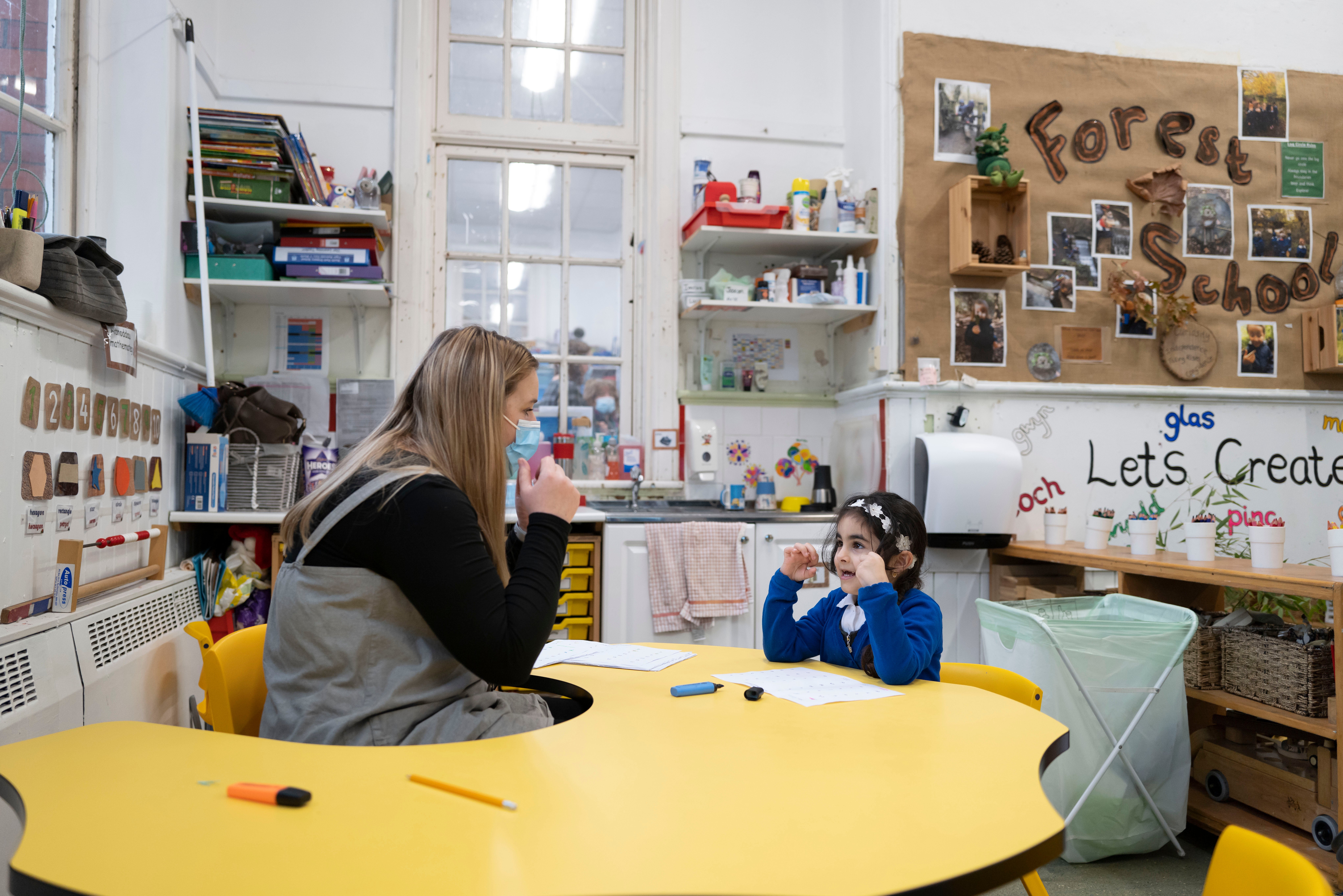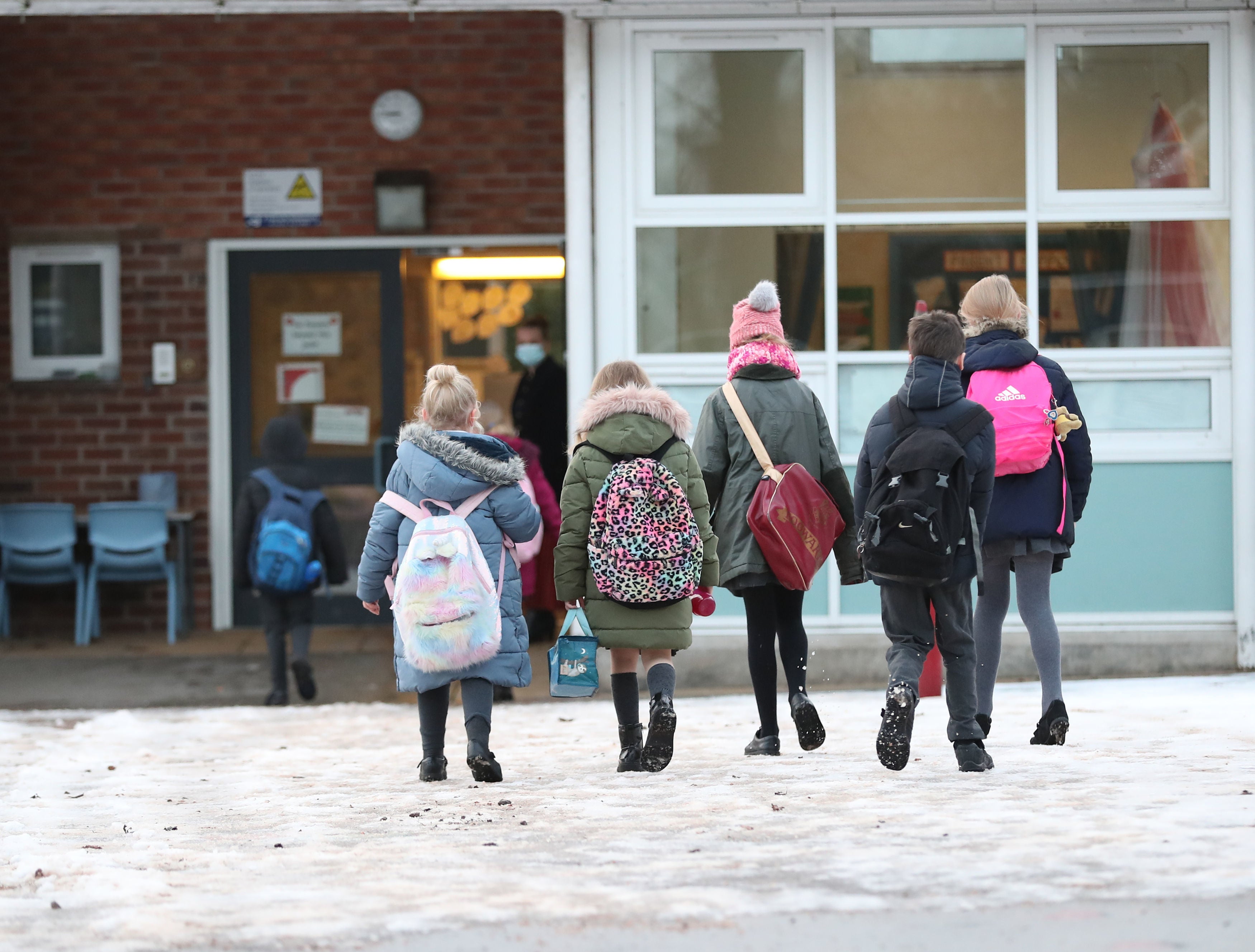‘Pull together and make it work’: The back to school message from teachers as classrooms reopen to all

Gerard Garvey, principal of Newcastle Sixth Form College, has spent the past few weeks preparing for all of his pupils to return.
The first phase of the government’s roadmap for leaving lockdown sees all children welcomed back to classrooms from 8 March – a step designed not only to support their educational needs but also their mental health and wellbeing.
“Our success as a college is all down to our relationship with our students and that comes from having them here with our teachers in the classroom,” said Mr Garvey. “We’re really excited.”
His staff of 100 are keen to see the 1,250 students return to the city-centre campus, Newcastle’s only standalone sixth form college, to demonstrate his premises and other environments are as safe as possible for children to learn in.
Rapid Covid-19 testing is being rolled out for secondary schools and colleges and protective measures remain in place, including bubbles, increased hygiene, ventilation, and staggered break and lunch times.

After an initial programme of three rapid coronavirus tests in school or college, students will be provided with twice weekly tests to do at home. Regular rapid testing is also being made available for parents, and adults in their household and support or childcare bubbles.
For extra protection, school and college staff and students in secondary schools and colleges are advised to wear face coverings in all areas, including classrooms, where social distancing cannot be maintained.
In primary schools, face coverings should be worn by staff and adult visitors where social distancing between adults is not possible, such as corridors and communal areas, but children in primary school do not need to wear one.
“If you believe, as I do, that having young people back in the classroom is the right thing to do then that’s where we need to put our energy,” Mr Garvey added.
“We need to make that happen by pulling together and making it work. That way we can get them back in for the rest of the academic year and work towards their plans, whether that’s higher education or other progression routes.”

The measures put in place by schools and colleges will lower the risk of the virus spreading and better protect staff as well as the families and bubbles of those attending an education setting.
London-based Masha Karpushina, whose two sons are returning to school, said she felt a “sense of relief and hope” at schools full reopening.
After several months of homeschooling Kolya, 13, and Alyosha, 9, she said she believed there was no substitute for face-to-face teaching in a classroom.
“I am really happy that they’re putting children first,” she said. “This seems more structured and gives more hope that it will work. It's very positive.
“School is such an integral part of their lives.”
Dr Gavin Morgan, an educational psychologist at University College London, agreed, and said that children returning to school would have benefits beyond simply improving educational attainment.

“There’s so much more that schools give other than teaching facts and figures, they’re essential for a child’s wellbeing and that’s been my biggest concern when children are at home – the impact on their wellbeing,” he said.
“Kids can catch up on education, on things they’ve missed and lessons they’ve not been part of but what you can’t ever replace are those incidental aspects of education which are so important for children’s development – playing, developing social skills.
“Schools teach so much more than lesson content, they give children of every age level, from five to 15, the steeping stones to becoming mature adults able to contribute to society.”
THE SCHOOLS TESTING PLAN
Now available for parents and adults in their households and bubbles
- Up to 1 in 3 people who have Covid-19 have no symptoms and could be spreading it without knowing.
- Rapid testing is a fast and easy way to find out if you have coronavirus. It’s free and takes around 30 minutes.
- It’s a simple swab test to the nose and/or throat, using a rapid lateral flow test.
- On return, secondary school pupils and college students will take three rapid tests at school to learn how to do the test and then continue to test themselves at home with test kits they will get from school.
- If you are a parent or adult in the household, childcare or support bubble you can now get tested too. You can either; get an assisted test at work if it is available, attend a test site to get tested or pick up test kits to do at home. Where these are not possible, there will be a small supply of tests online for people who need them the most.
- The more of us that take part and report our results, the more we can protect each other from the virus and get back to a more normal way of life.
- To find out how to get a free regular rapid test visit gov.uk/coronavirus
To address the impact of the pandemic, the government has provided a £700m education and recovery package to help young people in England catch up on lost learning.
A £1bn Covid catch-up package is designed to tackle the impact of lost teaching time, including a £650m catch up premium for schools to support all pupils and a £350m National Tutoring Programme for children that need it most.
In addition, there is an £8m wellbeing programme that has funded local expert support, training and resources for education staff to understand and respond to emotional and mental health pressures some children and young people may be facing.
For more information visit gov.uk/backtoschool or speak to your child’s school or college.